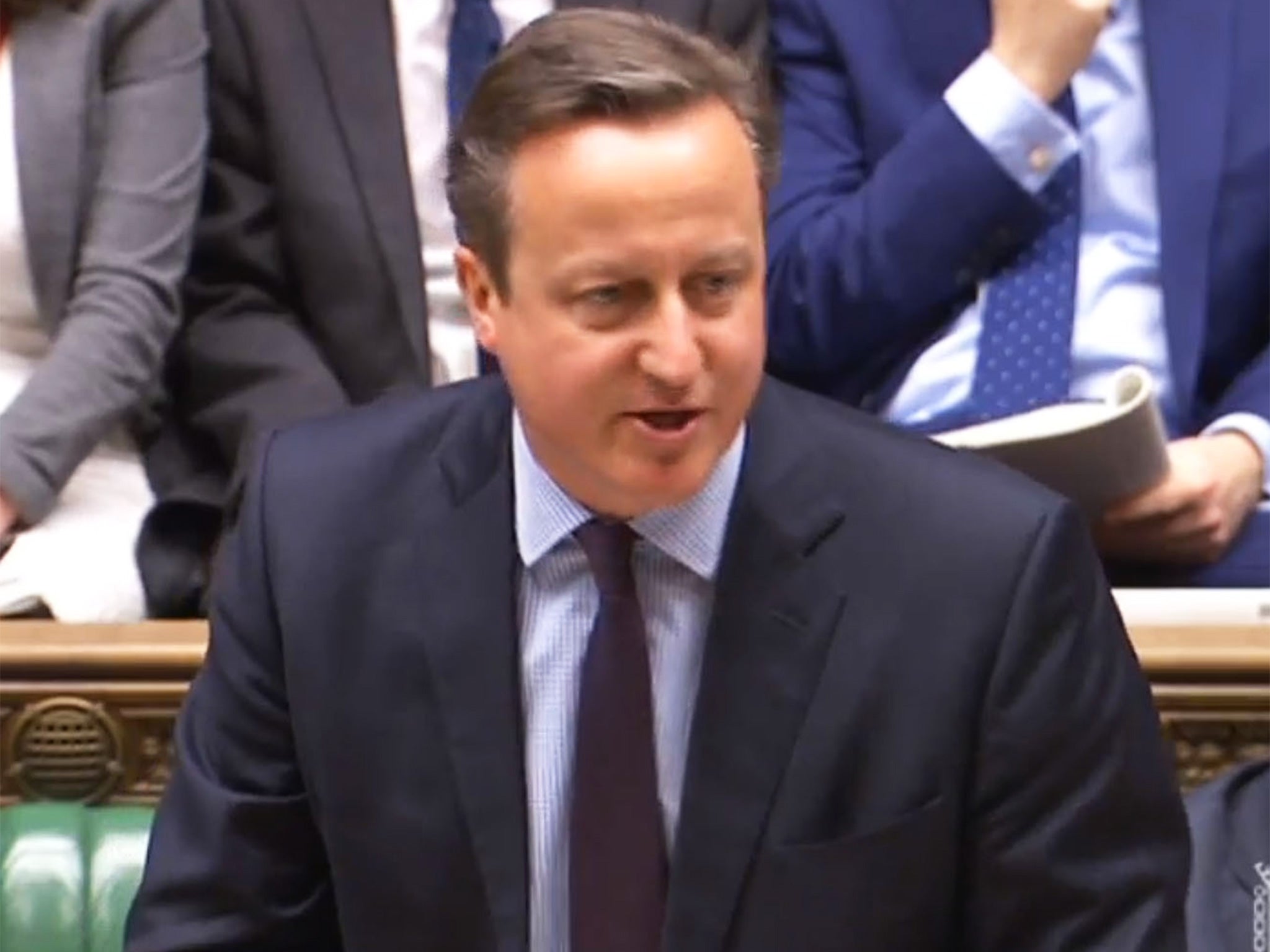Sketch: An unlikely turn of events at PMQs as ten year olds rail against 'top down reorganisation'
Ten year old pupils at Jeremy Corbyn's local primary school showed a reassuring understanding of the structural organisation of the education system

Your support helps us to tell the story
From reproductive rights to climate change to Big Tech, The Independent is on the ground when the story is developing. Whether it's investigating the financials of Elon Musk's pro-Trump PAC or producing our latest documentary, 'The A Word', which shines a light on the American women fighting for reproductive rights, we know how important it is to parse out the facts from the messaging.
At such a critical moment in US history, we need reporters on the ground. Your donation allows us to keep sending journalists to speak to both sides of the story.
The Independent is trusted by Americans across the entire political spectrum. And unlike many other quality news outlets, we choose not to lock Americans out of our reporting and analysis with paywalls. We believe quality journalism should be available to everyone, paid for by those who can afford it.
Your support makes all the difference.There is one often overlooked reason to be concerned about David Cameron’s plan to turn all schools into academies. The nation is simply not culturally ready for life without schools. Alice Cooper would not have electrified the hot August of 1972 had the refrain on the titular track of his landmark fifth album been ‘Academy’s Out [for the Summer].’ The idea of academies of cod patrolling the north Atlantic just seems weird. That’s one academy of thought anyway.
And besides, if the evidence of Jeremy Corbyn’s recent visit to Duncombe Primary School in Islington is anything to go by, the humble, unacademised school is doing just fine.
At Prime Minister’s Questions we found out that ‘Tasnia, Eamonn and Mary-Ann’ a trio of pupils in Year 6 (which makes them either 10 or 11 years old), had a message for Jeremy Corbyn to deliver to the Prime Minister: “Why are you doing this?” They wanted to know. “They love their school. They don’t want any top down reorganisation.”
What surer proof of a successful school system than three randomly selected Year 6 pupils, so well versed in the folly of Whitehall imposed restructuring in education?
The Labour leader kept his remarks succinct but others present at the visit tell me that the three of them went much further.
“We just want to receive our funding through our local authority not directly from central government,” Mary-Ann told Mr Corbyn.
“They say it’s about removing bureaucracy,” said Eamonn. “But being part of an academy chain and being overseen by an individual charitable body called an academy trust is just adding more bureaucracy.”
Tania was more philosophical. “If we control our own admissions process we wouldn’t have to let my little brother in, and he smells of poo. But I don’t need advice, support, expertise and a strategic overview from an individual charitable body. All I do is colouring in.”
It was at this point that word spread around the playground that the nice man who wasn’t actually a geography teacher had banned McDonald’s and the visit was hurriedly curtailed.
In fact, it was one of Jeremy Corbyn’s better performances at Prime Minister’s Questions. He stuck to his point on academy schools, quoting a range of Conservative MPs, local councillors and none other than the legendary Conservative former Education Secretary Kenneth Baker, who recently said of Cameron’s reforms, ‘I don’t know why he’s doing this.’
Naturally, Academy Schools were a Labour Policy, and Jeremy Corbyn will never convince anyone that Cameron’s commitment to improving education isn’t genuine or meaningful, because it is, on both counts. But the needless ‘top-down reorganisation’ of education, a phrase it is highly likely Labour have come up with without any help from some precocious Islington ten year olds, is likely to resonate just as much as the ‘top-down reorganisation of the NHS’ that cost Andrew Lansley his job and – far worse – his reputation.
Join our commenting forum
Join thought-provoking conversations, follow other Independent readers and see their replies
Comments